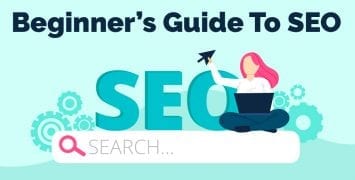One of the biggest misunderstandings among digital marketing professionals is that small sites are in a difficult position because they can’t rank as highly as larger branded websites. While there is some truth to this, clearly sites with more backlinks rank better, being small can also be an advantage but only if you understand what to do.
Particularly for websites that are in a content-heavy niche, rather than simply a relatively boring service business that works in a tiny industry, being big can often be a hindrance. After all, the bigger you are, the more moving parts there are and the less quickly you can move or focus on smaller issues when you have to keep pushing on and thinking of the big picture.
The Problem with Huge Sites
Perhaps one of the biggest problems with huge websites is that things are easily overlooked, both with on-page and off-page SEO, as well as content creation and keyword research. With so much going on, many staff members and a will to continue driving forward onto the next big thing, smaller but still very profitable opportunities can get missed.
Often the biggest websites do have an SEO team, but they aren’t focusing on ranking specific pages as much as a small site might. Instead, they are primarily interested in increasing the overall authority of the domain, and while that’s useful, it leaves money on the table where they could be trying to rank specific pages for profitable keywords.
Similarly, when multiple new articles are published daily on-page SEO can become very difficult. There is often a lack of interlinking between articles which can mean that even though a page is on a strong domain because it has no internal links to it the page ranks for very little at all. While a small site with fewer posts is often interlinked heavily, so there are no orphan pages.
Niche Down and Win with Depth
Larger websites usually spread themselves across a much broader range of niches, even within a single industry. For example; rather than focusing simply on lawn mowing, they might cover flowers, caring for trees and gardening tools as well.
As a smaller business, you have the opportunity to niche down heavily and beat them with greater experience, relevancy, and depth of content. When people search for queries related to, for example, lawn mowing on a specific type of turf in spring, your site might be one of the few who has covered the topic.
Instead of trying to beat them at scale, which will be nearly impossible, beat them with detail and depth by becoming the go-to expert for a relatively small subsection of the industry that you can serve the best.
Act Quickly on New Things
Another great SEO advantage that you have a smaller website is that you can act very quickly on new trends because there is little to no bureaucracy or chain of command. If Google was to release a new feature you can jump on it quickly, or if your industry changes in some way or has big news you can be the first to release an article covering the change.
Sure, you don’t have the same resources that a bigger company does, but often the barrier to speed isn’t resources, it’s the complete opposite. Big ships turn slowly while the smallest boats are the most nimble and the same is true in business, which is why startups can challenge existing brands so effectively.
Directing Resources to a Few Pages
While your biggest competitors are focusing on the industry as a whole and getting more visitors to their site, you can focus on getting more visitors to a page and doing everything you can to make that the best page ever. They are unlikely to do the same regarding on-page SEO and constantly battling for new backlinks to that page.
For this reason, smaller sites are often outranked on 99% of their keywords, but the few keywords that they focus on they can usually rank above big brands because they focus their resources there.




